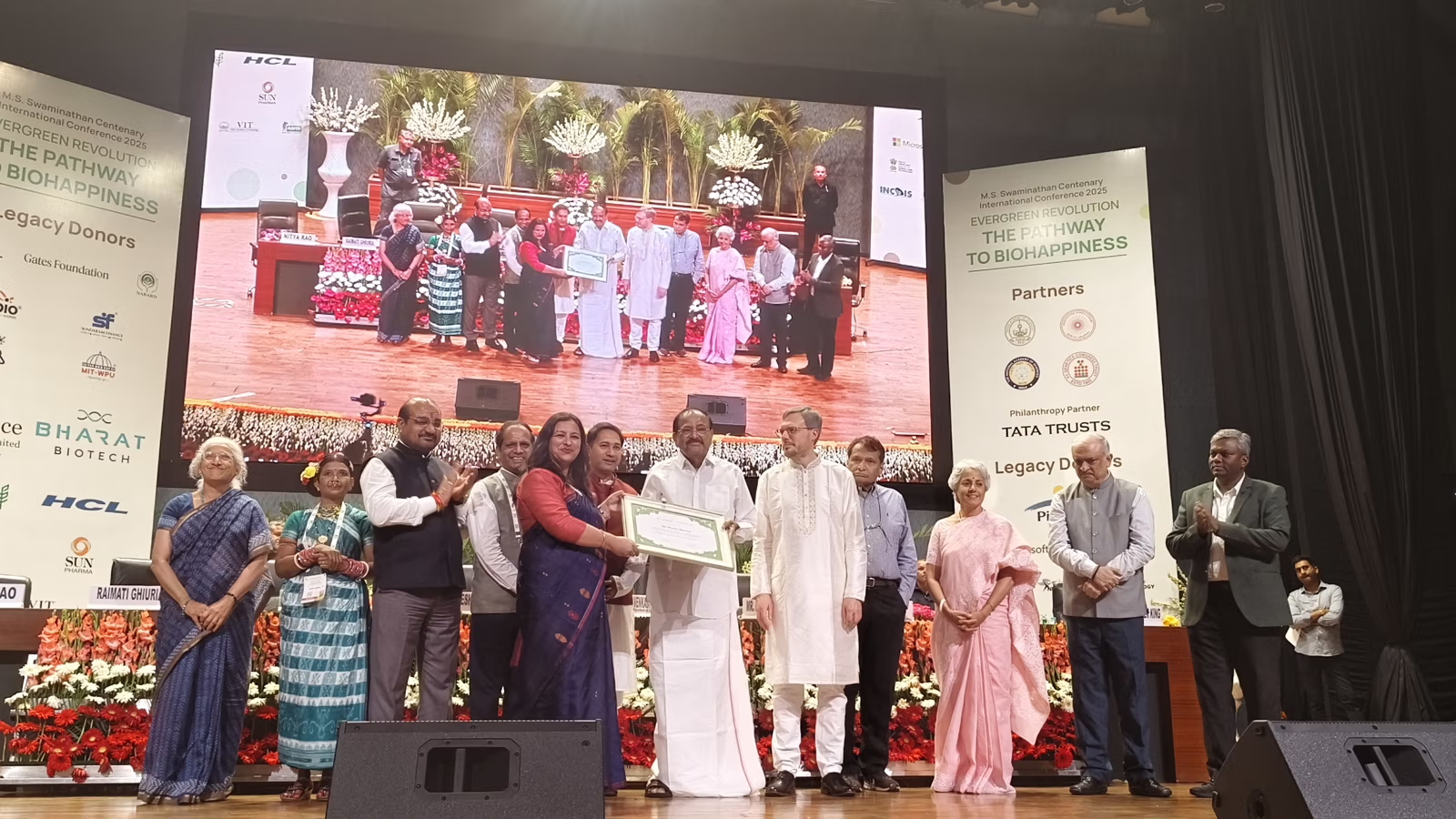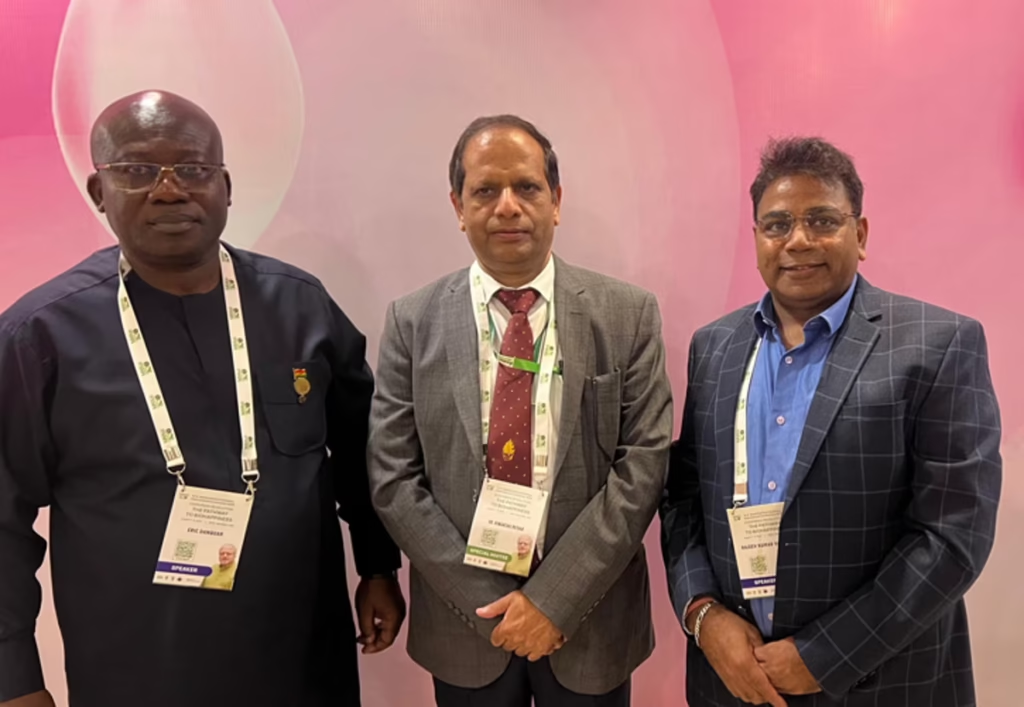Monday, 2 February 2026

Against the backdrop of rising climate pressures and nutritional challenges, the International Crops Research Institute for the Semi-Arid Tropics (ICRISAT) took center stage at the Prof. M.S. Swaminathan Centenary International Conference, held in New Delhi from August 7–9. Convened under the theme “Evergreen Revolution: The Pathway to Biohappiness,” the event drew scientists, policymakers, development partners, and farmer representatives from across the globe to honor Swaminathan’s legacy and set a blueprint for sustainable farming in the 21st century.
Leveraging decades of work with smallholder farmers in some of the world’s most climate-vulnerable landscapes, ICRISAT leaders presented a suite of actionable strategies blending cutting-edge science, on-ground innovation, and farmer-led models. The goal: build food systems that can withstand climate shocks, enhance nutritional security, and protect natural resources.
ICRISAT Director General Dr Himanshu Pathak played a prominent role in high-level sessions, calling for agricultural transformation that balances productivity gains with ecological integrity and social equity. “Prof. Swaminathan championed the principle that true agricultural progress can only be achieved when it safeguards both our planet’s ecological balance and the dignity of every farmer,” said Dr Pathak. “At ICRISAT, we are committed to solutions that help farmers prosper, restore our environment, and guarantee safe, nutritious food for all.”
From Yields to Nutrition
In a plenary session on transforming agri-food systems for better nutrition, Dr Shalander Kumar, Deputy Global Research Program Director, pressed for a shift from yield-driven agriculture to holistic systems promoting biodiversity, soil health, and dietary diversity. He emphasized the role of climate-smart crops such as millets, pulses, and oilseeds in delivering this vision. “It’s imperative that we transition from measuring agricultural success purely by yields to measuring it by how well it nourishes people and sustains the environment,” Dr Kumar noted. “The Evergreen Revolution provides the framework for achieving this balance, delivering climate resilience, improved nutrition, and sustainable livelihoods, particularly for smallholder farmers.”
Recognizing Scientific Excellence
The conference spotlighted research impact through the inaugural M.S. Swaminathan–Grow Further Award, presented to ICRISAT scientist Dr Mamta Sharma for her pioneering work benefiting climate-vulnerable smallholder farmers. The award—jointly instituted by the M.S. Swaminathan Research Foundation (MSSRF) and Seattle-based philanthropy Grow Further—was conferred by M. Venkaiah Naidu, Former Vice President of India.
Global Collaboration for Local Impact
The three-day event concluded with the Delhi Declaration on Biohappiness, a global call to action for resilient, equitable, and nature-positive food systems rooted in Swaminathan’s principles of ecology, economics, and equity. Dr Pathak joined global leaders in pledging to translate this vision into measurable outcomes through stronger research, policy, and community linkages.

On the sidelines, ICRISAT advanced its partnerships through strategic meetings with Mr Takayuki Hagiwara, FAO Country Representative for India; Dr Yashpal Saharawat, Director – Resilience and Environment at the International Fertilizer Innovation Center (IFDC) in India; Dr Rajeev Varshney, Professor at Murdoch University’s Food Futures Institute; and Dr Eric Danquah of the University of Ghana. These discussions focused on scaling climate-smart agriculture, strengthening resilience in agri-food systems, and accelerating innovation for smallholder prosperity.
As the conference closed, the message from ICRISAT was clear: agricultural transformation for the Global South must be science-led, farmer-centered, and nutrition-driven—ensuring that the next revolution in farming is both climate-resilient and socially inclusive.